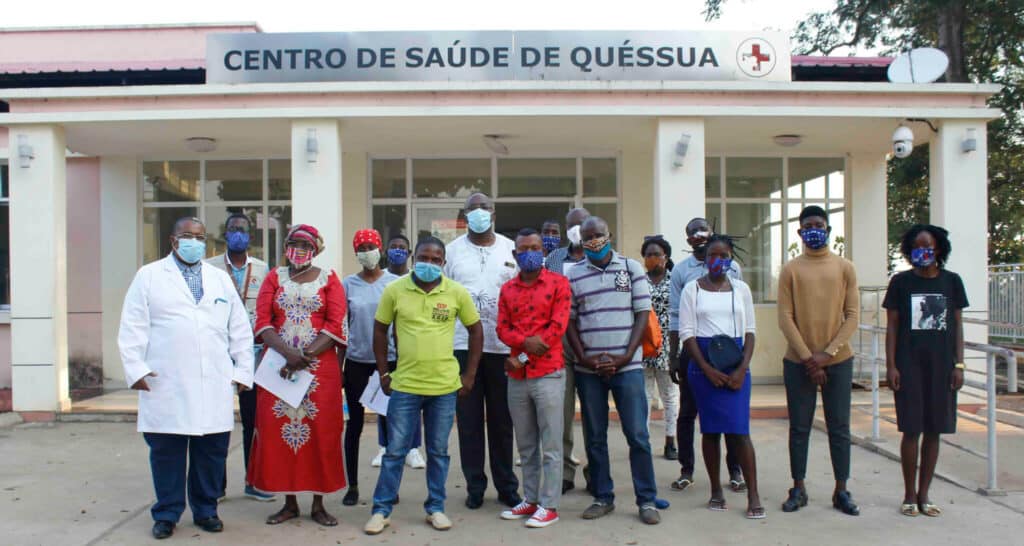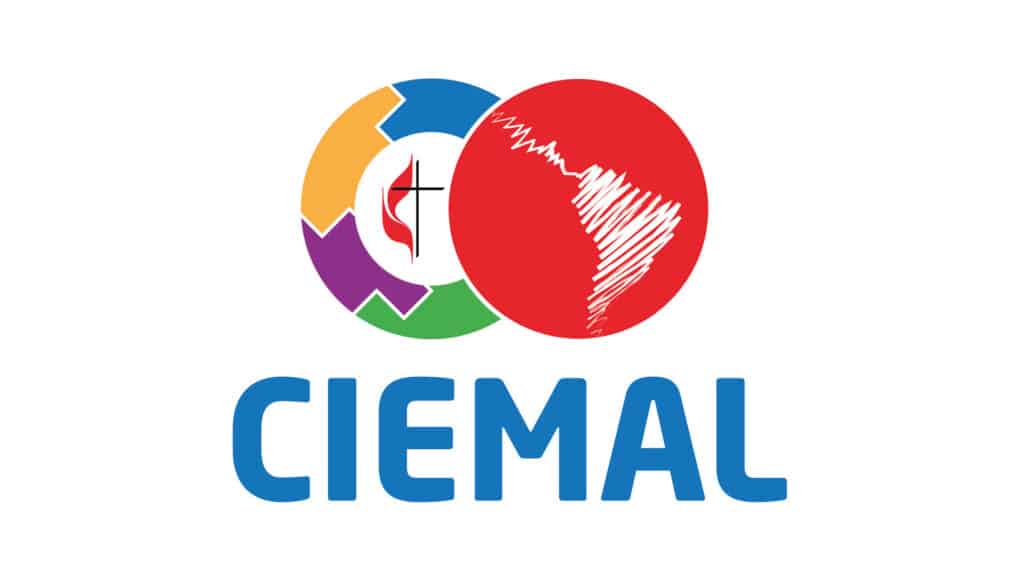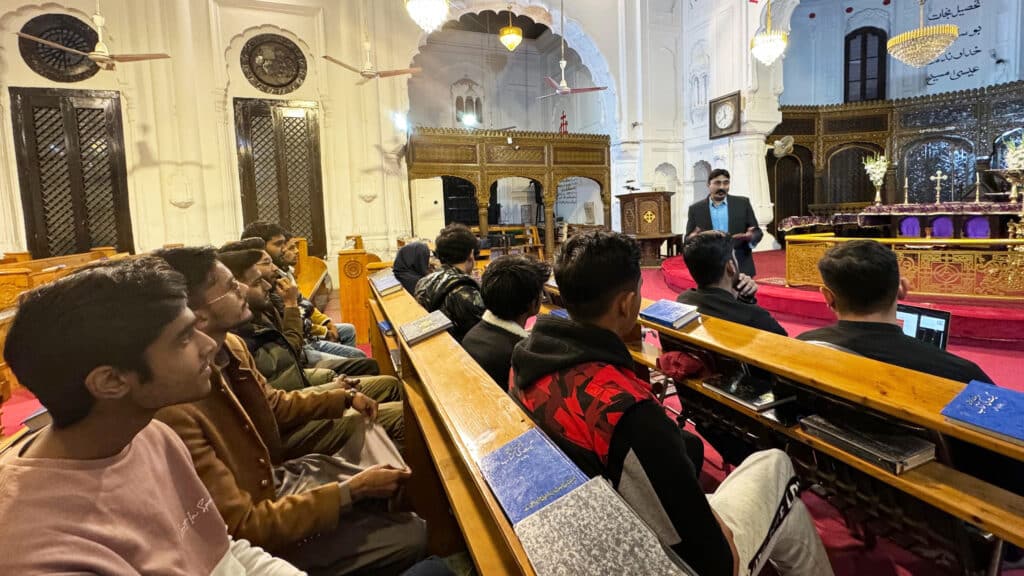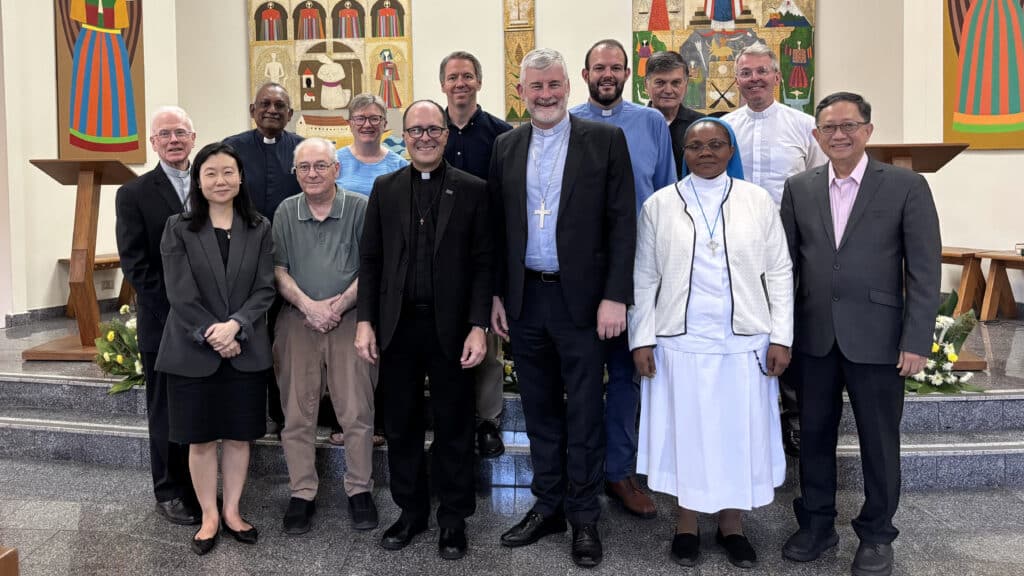By Leo Garcia
With COVID-19 making its way across Africa, the health team of Quéssua Central United Methodist Church requested support from Global Health of Global Ministries for a project we developed called Community Prevention of COVID-19. With a preventive health program, we can avoid a rise in people infected with the novel coronavirus in this country.
In April 2020, the health team and leaders of the community began to prepare for COVID-19 prevention by conducting various health education seminars. Participants included pastors, the UM Youth of Quéssua, the Sobas (leaders of the villages of the various ethnic groups) and health authorities from the Malanje municipal and provincial government of Angola.
Training the voluntary facilitators has been, for me, a powerful experience of sharing in fellowship, knowledge and solidarity. They are ready to influence the transformation of the inhabitants of Quéssua into families that take care of their health through faith and new knowledge about how to prevent COVID-19.
We purchased 1,000 buckets, which we then modified by placing faucets on the side for better use. Families can use them to store water in households in communities that don’t have running water in their homes. The materials were available, and the Angolan Christian youth worked on the buckets.
To make sure our efforts comply with the best preventive measures to combat COVID-19, we purchased enough soap to ensure that all family members in the villages could wash their hands frequently. The combination of the two resources, 1000 buckets and bars of soap, was delivered even to the most vulnerable households in the communities.
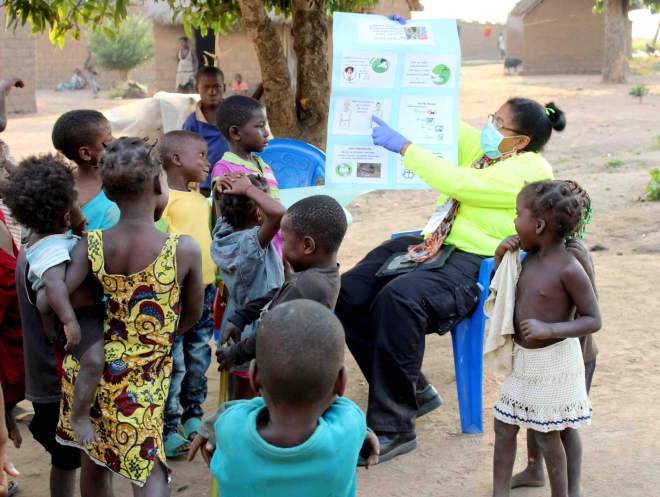
In the “Education and Prevention” stage of the project, we shared the preventive health measures in Kimbundo, the ethnic language of the region. Support was offered by local pastors who used loud speakers to promote health among their community members.
The families, listening to the loud speaker, left their homes and complied with the social distancing measures outlined by the country’s health authorities. All families received the guidelines to prevent the spread of the virus.
Once in the villages, going from house to house, the volunteers offered health education on disease prevention topics, as well as on hand washing, respiratory hygiene and social distancing.
The volunteer facilitators have a divine call to continue the project in the villages of Quéssua. The challenge is enormous: and I confess that, at times, it seemed impossible for us to implement, but God made it a reality.
A gift to Abundant Health, Advance #3021770, will help United Methodist health facilities meet the health needs of people in their communities.
The Rev. Dr. Leo Garcia is a missionary, pastor and medical doctor from Cuba serving at the Reference Health Center of Quéssua with the East Angola United Methodist Church at Quéssua Methodist Mission, Malanje province. His partner in this ministry is his wife, the Rev. Dr. Cleivy Benitez Rivalta.
